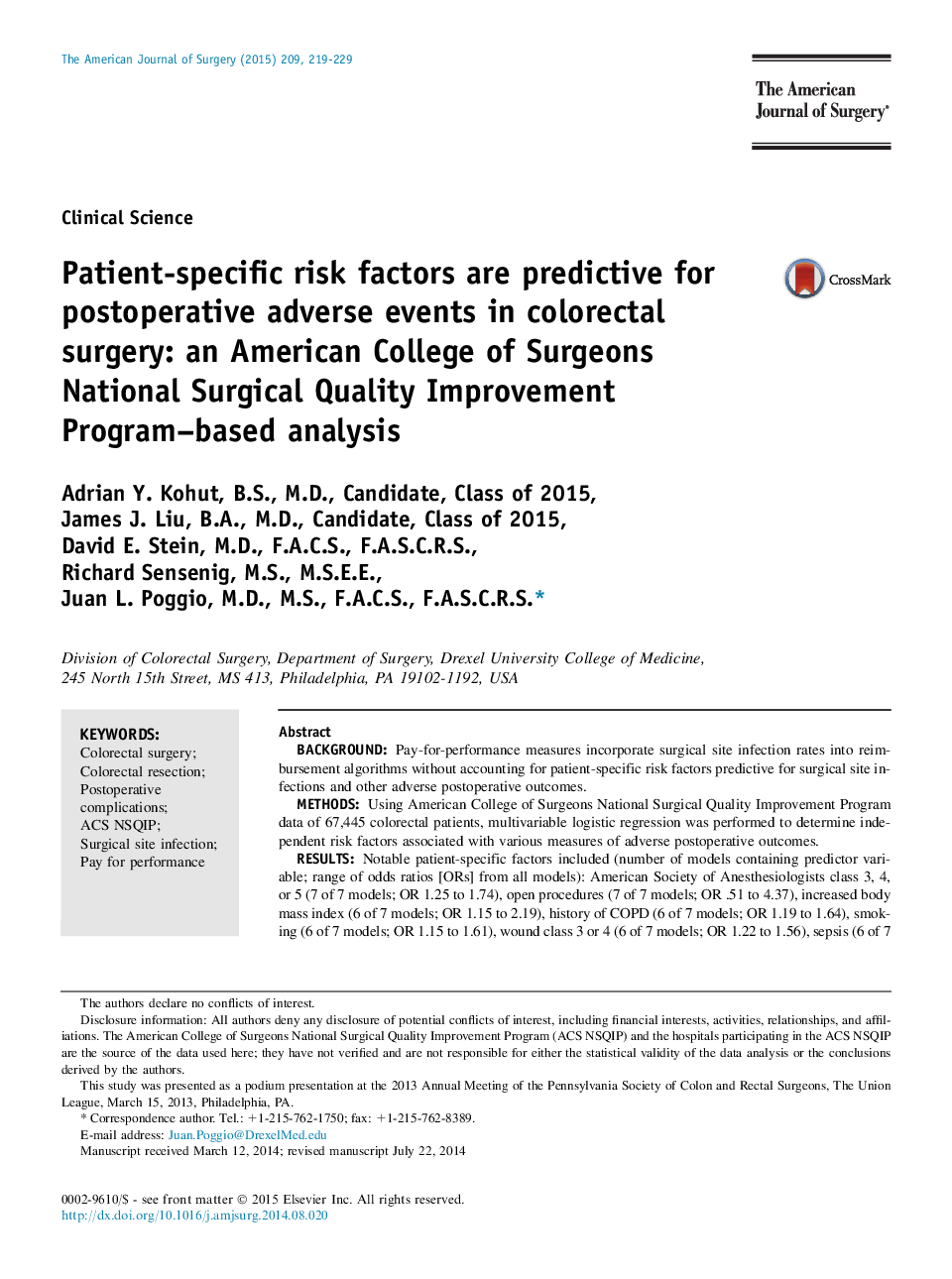| Article ID | Journal | Published Year | Pages | File Type |
|---|---|---|---|---|
| 4278588 | The American Journal of Surgery | 2015 | 11 Pages |
BackgroundPay-for-performance measures incorporate surgical site infection rates into reimbursement algorithms without accounting for patient-specific risk factors predictive for surgical site infections and other adverse postoperative outcomes.MethodsUsing American College of Surgeons National Surgical Quality Improvement Program data of 67,445 colorectal patients, multivariable logistic regression was performed to determine independent risk factors associated with various measures of adverse postoperative outcomes.ResultsNotable patient-specific factors included (number of models containing predictor variable; range of odds ratios [ORs] from all models): American Society of Anesthesiologists class 3, 4, or 5 (7 of 7 models; OR 1.25 to 1.74), open procedures (7 of 7 models; OR .51 to 4.37), increased body mass index (6 of 7 models; OR 1.15 to 2.19), history of COPD (6 of 7 models; OR 1.19 to 1.64), smoking (6 of 7 models; OR 1.15 to 1.61), wound class 3 or 4 (6 of 7 models; OR 1.22 to 1.56), sepsis (6 of 7 models; OR 1.14 to 1.89), corticosteroid administration (5 of 7 models; OR 1.11 to 2.24), and operation duration more than 3 hours (5 of 7 models; OR 1.41 to 1.76).ConclusionsThese findings may be used to pre-emptively identify colorectal surgery patients at increased risk of experiencing adverse outcomes.
